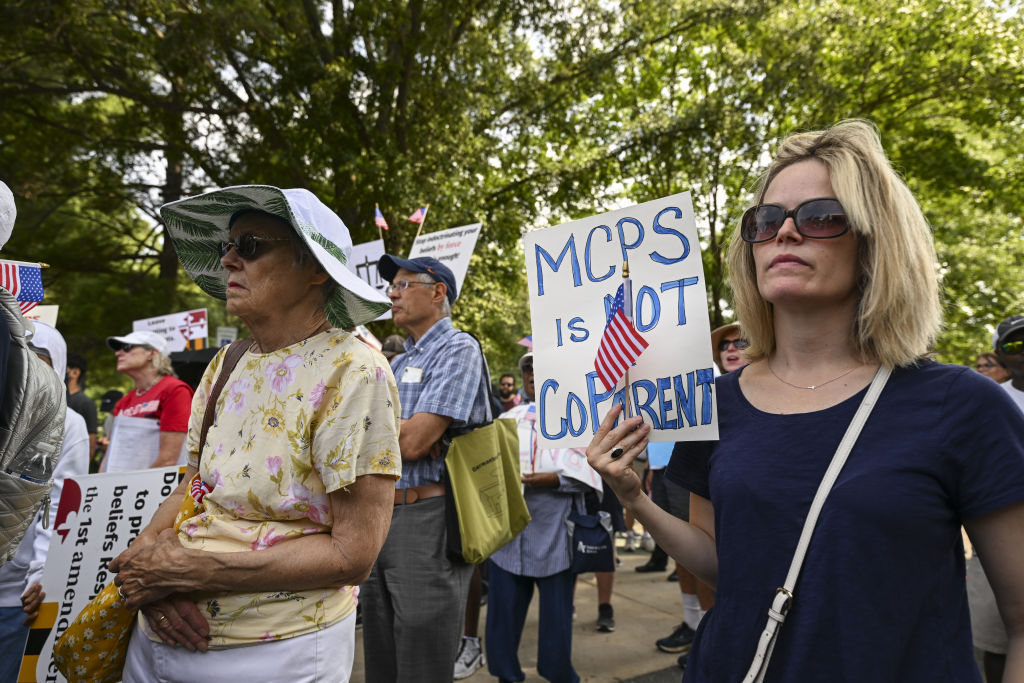Transcript: Alberto Carvalho on "Face the Nation," September 12, 2021
The following is a transcript of an interview with Alberto Carvalho, superintendent of Miami-Dade County Public Schools, that aired on Sunday, September 12, 2021, on "Face the Nation."
MARGARET BRENNAN: We want to turn back to our coverage of the COVID pandemic, several school districts in Florida are in an ongoing battle with the governor over that state's ban on mask mandates. The federal government is now involved with the Department of Education investigating whether it violates the civil rights of children with disabilities. We want to go now to the superintendent of the Miami-Dade County School District, Alberto Carvalho. Good morning to you.
MIAMI-DADE PUBLIC SCHOOLS SUPERINTENDENT ALBERTO CARVALHO: Good morning, MARGARET.
MARGARET BRENNAN: So, a Tallahassee judge says the governor is well within his legal rights. But do you believe that this ban on mask mandates actually does violate the rights of children with disabilities as the federal government is investigating?
CARVALHO: I certainly do, and I believe that the recent actions taken in Tallahassee are contrary to the expert advice of public health and medical entities that declare that mask mandates are protective measures that serve a compelling public interest. Look, I'm the superintendent of a district that has lost 13 employees since August 16th. Yes, all of them were unvaccinated. We're still in a community where the positivity rate is at 8%, where the number of cases per 100,000 residents is elevated at around 330. When back in June, it was only about 76 individuals per 100,000. So the conditions are not what they should be for us to relax the protocols.
MARGARET BRENNAN: So, what actually controls the spread in the classroom. Are classrooms vectors for spread of this virus?
CARVALHO: I think the experts are very compelling in telling us what controls the spread. Number one, vaccination for those who are eligible 12 and older, and I am proud of my community since 98% of residents in Miami-Dade have already attended at least one dose of the vaccine. As a school board, we've taken courageous steps incentivizing the vaccination of employees with financial incentives for our employees, social distancing, mandatory masking, ionization, cleaning techniques in the classrooms. If you put all those together, a multi-layered approach, then we can in fact contain the spread of this awful disease.
MARGARET BRENNAN: So, you can't require your employees to be vaccinated.--
CARVALHO: In the state of Florida, there are legal restrictions in terms of mandating vaccination of employees.
MARGARET BRENNAN: Exactly. And then the teacher's union, they're encouraging vaccination, but they aren't mandating it. Does anything change now that the president made this announcement?
CARVALHO: Well, I think one thing that has changed is the fact that there is a greater incentive and a greater focus on the need to vaccinate individuals in our communities. You know, the best way, the best way to reduce the positivity rates to contain the spread of COVID-19 is by surrounding kids with vaccinated individuals. And our incentives, the deployment of mobile vaccination units and testing units to our schools, which we do around the clock--
MARGARET BRENNAN: Right.
CARVALHO: --are having an effect.
MARGARET BRENNAN: Well, I want to ask you about the tragedy, as you just mentioned, of those 13 people who worked for you, right? And in a district which has high positivity rate, high poverty rate, they were unvaccinated. Why did they refuse to get vaccinated?
CARVALHO: And I think that's an important question, and I think it underlies, you know, it's- it's- it underscores a real tragedy in our community and across the country. There are individuals in our communities, particularly ethnic minorities, who as a result of sad examples that are historic in nature, coupled now with misinformation and disinformation from a very small but very vocal minority that seeks to misinform and confuse. And the sad reality--
MARGARET BRENNAN: Well, that's why I'm asking- that's why I want to ask you if the president's mandate and talking it up makes a difference because the former surgeon general was tweeting, Jerome Adams, this week that he gets the intent, but many minorities, he says, "still have historically founded reservations. Many people have honest questions." So, he's saying essentially this may backfire in those minority communities. If they don't trust the federal government, the federal government telling them to take a vaccine isn't going to help.
CARVALHO: I understand, and that's why local governments that are usually trusted- school districts, teachers, educators, superintendents, school board members, community-based organizations need to step up to provide an echo and a course of reason in our communities. Look, this should not be a political issue. This is a health concern issue. We've never debated the value of vaccination for measles, mumps, polio or hepatitis.
MARGARET BRENNAN: Yeah.
CARVALHO: What's different now? The conditions? The health conditions are not what's causing this issue. Politics are, and sadly, here we are debating this from a political perspective, rather than a health benefit perspective.
MARGARET BRENNAN: Yeah.
CARVALHO: I tell you, as a superintendent, as a father, as a teacher, I am concerned for our kids. They are being used as political pawns in this political chess game, and that is reprehensible.
MARGARET BRENNAN: Thank you very much for joining us and good luck with the kids in your schools.
CARVALHO: Thank you.



